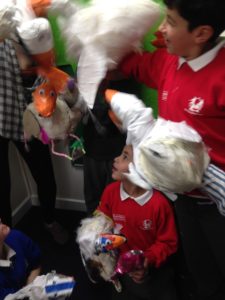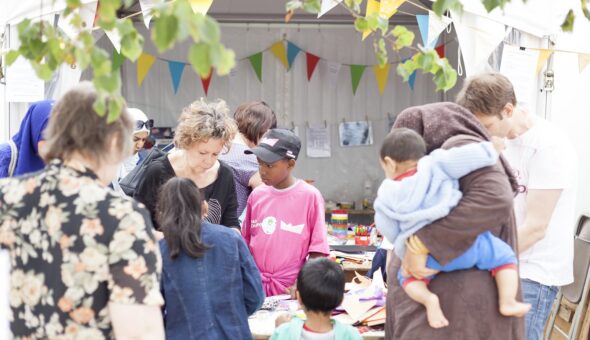Caroline Hickman (Social & Policy Sciences) was awarded £500 to measure the attitudes of the children towards seagulls and to educate them about the risks seagulls are facing.
This public engagement project has been successful in meeting its objectives, but also been a lot of fun. The project collaborated with the Young Carers' Centre in Bath, aiming to measure the attitudes of the children towards seagulls and educate them about the risks seagulls are facing. There was a strong desire to approach the project in a creative and interesting way, engaging the children in both the subject and also the research project. Their attitudes towards seagulls were measured at the beginning and again at the end of the workshop to compare any differences.
There is a tension in urban environments between people and seagulls as they move into cities, partly as a result of climate change. Due to the water in our oceans becoming warmer, fish have to swim deeper to find the right living temperature, meaning they are more difficult for seagulls to reach. This has forced seagulls to migrate more inland, which then causes tension with residents and local councils because they can be seen as loud, aggressive, and disruptive to live alongside. As we still see less obvious signs of climate change in the West, it is important in exploring social attitudes to climate change to include children in these discussions, and to help them to become aware of the signs that are visible, as this could help prepare them to deal with the future changes we all need to make to deal with the impact of climate change.

A melange of children and seagull puppets!
Most of the funding for the project was used to employ a puppet maker who came into workshops to help the children make seagull puppets. This included paying for his time and all the materials needed to make the puppets such as newspaper, sticky tape, glue, feathers, and pipe cleaners. He worked really well with the children, engaging and inspiring them to create their own individual puppets. The children then named their seagull puppets and created characters and stories for them. We are making a short film of the children talking about the seagull puppet workshops, as well as animated conversations between the puppets filmed against a green screen background. The Young Carers Project will have a copy of the film to show parents and funders.
Dr Chris Pawson, Head of Psychology at the University of the West of England, worked with Caroline to set up the project and first year undergraduate social work students attended the workshops and worked alongside the children, giving them valuable practical experience for their studies. The intention was to run three workshops, but due to its success, they have held four workshops and there is a fifth planned. There has already been a commitment for another joint project in January as it has gone so well this year.
Caroline also had seagull postcards to hand out to adults who attended the University of Bath’s 50th anniversary festival. The postcards contained three questions: “Where do you live?”, “What is your age?”, and “What is your opinion of seagulls?” She had approximately 300 completed cards returned and she is planning to compare the results to the children’s results from the workshops to extend the data on public attitudes to Gulls.
Contact Caroline (c.l.hickman@bath.ac.uk) for further information about her project.
Respond


